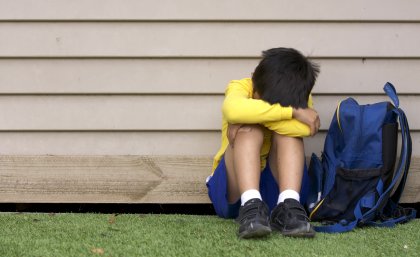 Simple strategies could help families of teenagers with a developmental disability gain confidence about their teen’s future.
Simple strategies could help families of teenagers with a developmental disability gain confidence about their teen’s future.
University of Queensland Associate Professor Kate Sofronoff said many parents of teens with a developmental disability faced enormous challenges, particularly concerning behaviour.
“For these families, behavioural problems can seem all-consuming and can affect the whole family,” Dr Sofronoff said.
“Life can be so stressful, many parents or carers worry about their child’s outlook and how they will be able to function as a member of the community as they grow into adulthood.
“What we are exploring is whether simple strategies delivered over an eight-week group program can give parents more confidence to manage their teen’s behaviour and encourage their teen’s independence and resilience.
“We know this is the case with young children and now we want to help families build better relationships with their teens.”
The group program, Building Bridges Triple P, is free and will be run at the UQ Psychology Clinic in St Lucia every weekend from Saturday 14 April.
It will run over eight consecutive weeks with five weekly 90 to 120 minute face-to-face sessions, and three sessions conducted over the phone to help keep families on track with the strategies.
The program requires the participation of parents only and no involvement of teens is required. Interested parents can contact researcher Tahlia Brooke Gash, t.gash@uq.net.au or 0423 333 160.
Media: Associate Professor Kate Sofronoff, k.sofronoff@psy.qu.edu.au; researcher Tahlia Brooke Gash, t.gash@uq.net.au, +61 423 333 160; UQ communications, Paddy Hintz, p.hintz@uq.edu.au, +61 431 706 822, Twitter @Paddy_Hintz.
If you would like to support ongoing research in this area, please consider making a tax-deductible donation to the UQ School of Psychology.



